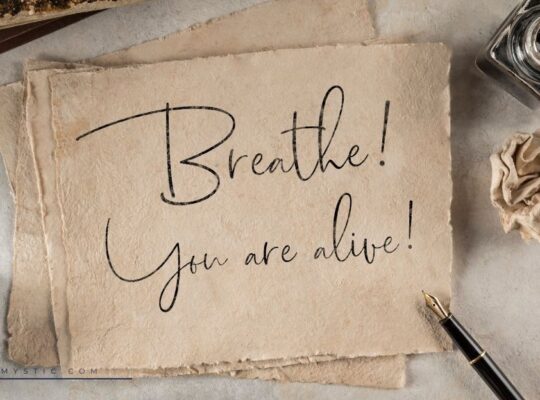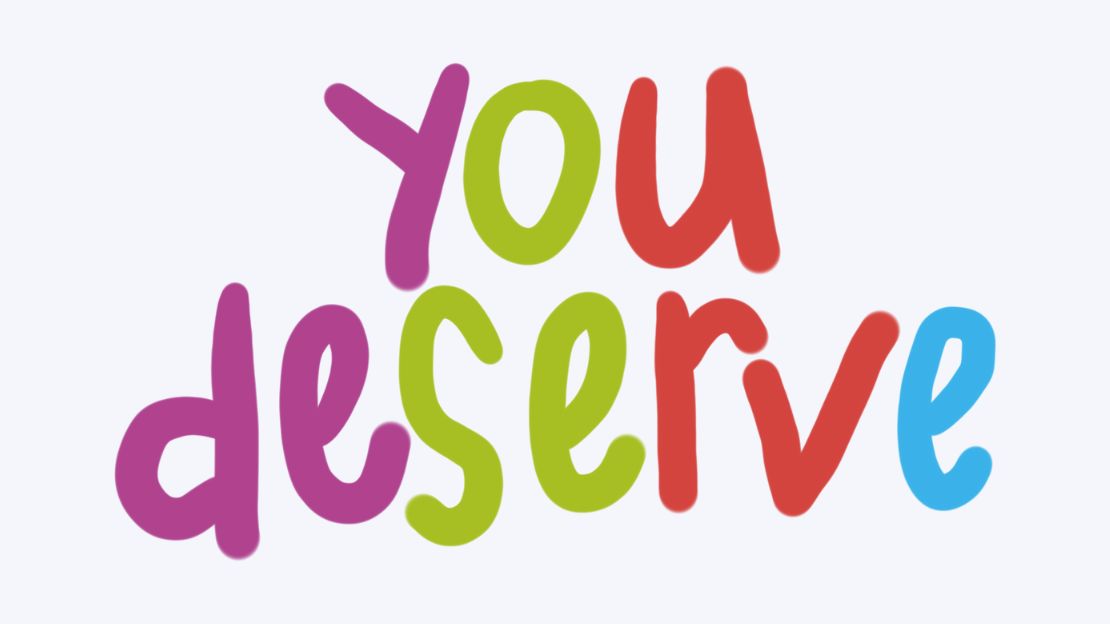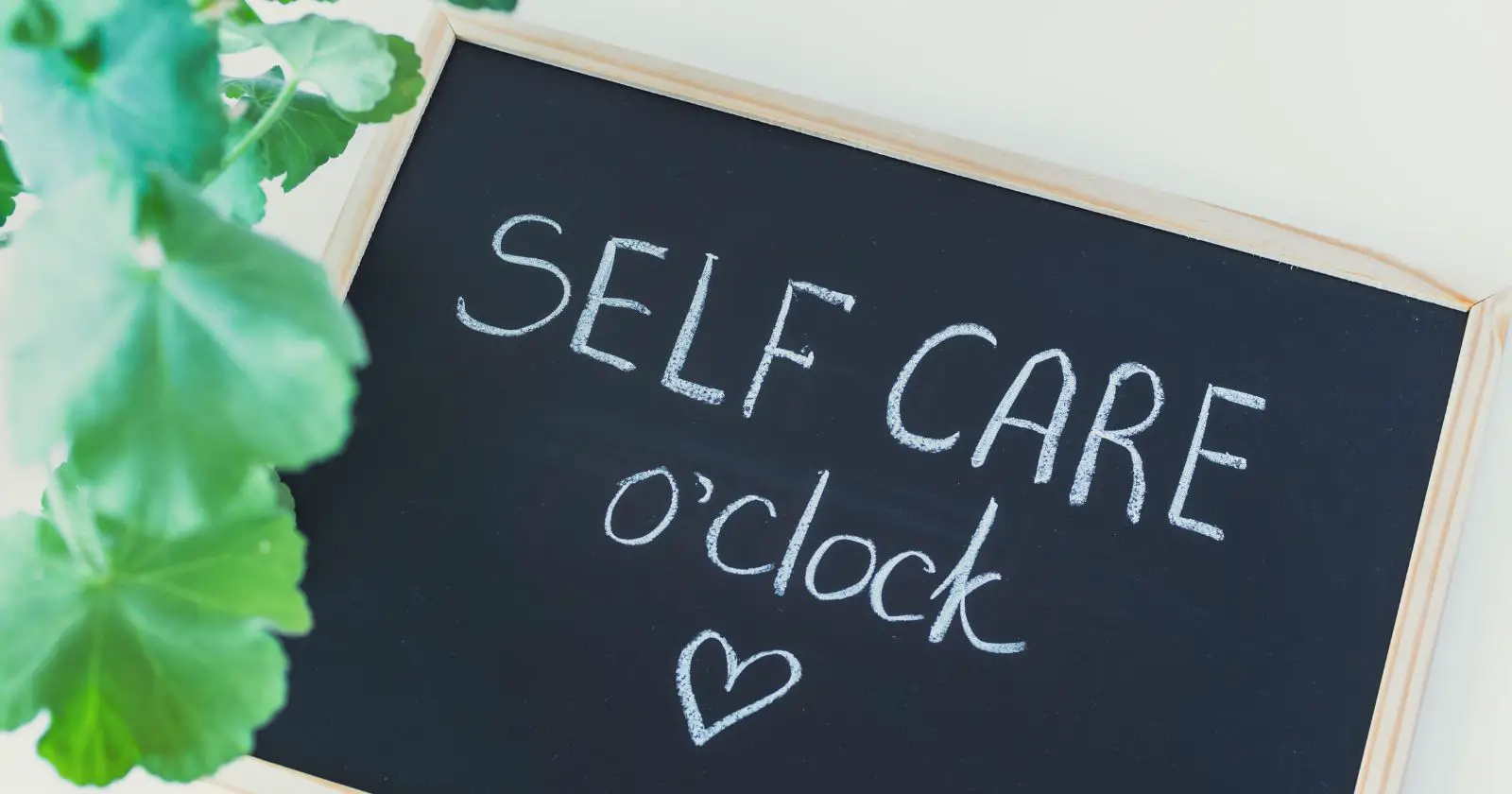To fulfill something is to “bring into actuality.” It is a measurement in satisfaction and can note the completion or end of something (Websters New Riverside University Dictionary, 1984). What this means for you and the rest of us is that fulfillment is that thing we constantly seek. It’s an unfortunate and objective fact that we are all born with this innate feeling that there is room for improvement within us. It’s an evolutionary component which developed from centuries of raw survival.
Subjectively, this feeling or drive to improve is often felt by some to be some sort of inadequacy or broken thing inside us. When this sort of dysfunctional process occurs, we look to fill a void rather than use the drive to improve.
Most simply put…
We’re born naked, cold, and screaming bloody murder. We’re never born alone because from that moment on, we’re on a journey of development and growth. This particular journey is bumpy, curvy, scary, unfair, amazing, thrilling, and worth it. That’s also the point.
Unfortunately, many people look at their lives and look for the end point, or the destination as a measure of their happiness and success, meaning that they look at the current state of their lives and bemoan everything they don’t have or have failed to achieve and denigrate their existence for those failures or shortcomings. The point they forget is that the journey isn’t over. They’re not at the end point. They’re just ruminating, and judging.
Finding fulfillment in your life isn’t about where you end up. We all end up in one of 2 places. In the ground or in an urn. That’s the end point. Until then, it’s the journey. That being said, it’s the journey that matters here. The journey is the point of life. So, finding fulfillment isn’t an end goal or destination. It’s a part of the map.
Self-Awareness
You can do all of the exercises, activities, self-development steps, and meditating you want. Until you understand You, fulfillment will remain a distant dream always beyond tomorrows horizon.
Our whole lives we’re told to focus on the future. In early childhood we’re taught our colors, shapes, and numbers so that we can be on the same level as our peers as we enter school. We’re told to get good grades so that we can get into a decent college, and maybe get a scholarship. To that same end, we’re told to mind our manners, and keep track of our popularity polls lest college admissions find an unfavorable tweet.
Then we’re told to pick the right major or vocation. This is a decision made so early in life that many of us get to middle age to discover a mistake from our childhood. So, we go looking for fulfillment elsewhere. Those who are really brave make a professional change in order to find fulfillment.
Because we can’t find fulfillment in one area of our lives, we look for it in others with lust, gluttony, greed, sloth, wrath, envy, pride, denial, regression, dissociation, compartmentalization, projection, etc.… For every unfulfilled life, there is a mechanism for coping with that lack of joy and happiness.
Specifically, what is the most occurring reason for divorce? Anybody know?
The top two tend to be infidelity and money. Beyond that, bickering, weight gain, unrealistic expectations, lack of intimacy or equality, and abuse rate next. Divorce rarely happens for lack of love. More often than not, it happens because the members within a relationship feel unhappy, unfulfilled, and they want the freedom to find that fulfillment.
Brandan and Kacey have been married for a year now. They love each other, but it’s already getting rocky. Kacey is a pharmacy Technician. It’s a job which she enjoys and finds pleasure in doing. The routine isn’t so monotonous that she goes crazy. Plus, since she works inside a hospital pharmacy she deals with nurses, Pharmacists, and Doctors. There’s a need to build professional relationships but no customer service is necessary. This is preferential to Kacey for a number of reasons and is the primary reason she finds so much joy in her work.
Brandan has an engineering degree, but he works construction. One day, about 9 months into their marriage, Brandan comes home after having stormed out of his work. He’d lost his temper with the foreman, because at the end of the day Brandan knows more about soffit and how to install it than anyone else. He walked in huffing and puffing, unable to hold in his frustration, and launched into a tirade about how he’s so much smarter than his foreman, and he should have that job.
This isn’t the first time Kacey heard all of this, but she sat silently and patiently while Brandan vented. Two weeks later, Brandan still hasn’t found new work since he has no decent references from any of his many past employers, and Kacey can’t afford the three-bedroom apartment, her car payment, his truck payment, vehicle insurances, and utilities on her own.
They move out of their three-bedroom apartment into a one bedroom, one loft room, shop apartment on her mother’s property. It’s livable, but not suitable since Brandan also has three children with his first wife who visit Kacey and Brandan on the weekends. It doesn’t take long until Brandan begins to blame Kacey for everything:
Losing visitation with his kids, their inability to maintain and expensive apartment, his inability to keep a job, her inability to work full time and be the housewife, blah, blah, blah. The list goes on. Brandan begins to wish he’d never married Kacey since she’s not good enough, but at the same time he starts to get jealous of Kacey’s friends.
Kacey comes from a family of boys. All of her friends are male. She’s even friends with her ex-boyfriends and has rules about this; chief among them is to never regress back into a failed relationship. It’s her gospel. However, Brandan can’t handle it, so he begins to become abusive. He takes her phone, monitors her texts, and even goes so far as to force Kacey to close her Facebook and IG accounts.
Ten years later, Kacey and Brandan have been divorced for nine years. They’re both re-married. She’s happily married to Chris, and they’re about to celebrate their 8th anniversary. Brandan is on the brink of his 4th divorce with yet another ex-wife to be claiming physical abuse.
What’s Brandan’s issue?
He had a great paying job, but it wasn’t high paying, or prestigious enough to impress his family.
He had an amazing wife who was happy with life right up until he became insecure and abusive.
Brandan’s issues didn’t start with him blowing up and walking out of a job. They existed long before that.
The Grass is Greener
So, we have this inner sense telling us that there’s room for improvement. Some of us translate this to mean that something is broken. Perhaps that was Brandan’s problem. Who really knows?
All we do know is that he is fundamentally unhappy and unfulfilled. But this also makes him the ideal candidate to use to illustrate two points here. The first one is that grass is never greener on the other side.
Okay… okay… Maybe it is greener, but is it as soft or taste as good?
The part of Brandan’s story which preceded his marriage to Kacey is that along with every job that he’s walked out on, he also walked out on his first wife of 10 years. They had 3 children together, but Brandan dreamed of a life with a younger woman in a nice house, with a nice truck. His first wife always put the needs of their kids before his or hers. This meant that an older house with ample room trumped a glamorous apartment. A minivan trumped the F-150 he wanted.
But what Brandan found was that a new, younger wife and his dream apartment came at a high cost. The second wife was younger, and more amenable to his desires, but he had to sacrifice time with his kids. The apartment he and Kacey had was what he’d looked forward to during the divorce, and the truck was the truck he wanted to buy when he was forced to buy his first wife a minivan instead. However, he couldn’t afford either of those things without a second income.
After he threw one of his tantrums in her workplace Kacey lost the job that she loved and depended on. She moved two time zones away where she eventually rebuilt everything and met Chris.
The second point that Brandan is useful in illustrating is powerlessness. He took zero responsibility for his life, actions, or their consequences. Also, he chose not to learn from his mistakes. In doing this he relinquished his power and became miserable.
Unfulfilled living doesn’t necessarily equate misery on Brandan’s level. Sometimes it just leads to dissatisfaction.
We’re programmed from childhood that a good education, coupled with the perfect job, the 2.3 kids, and the 3-bedroom split level are the things that bring us fulfillment. Obviously, it’s not.
Where Fulfillment Comes From
Fulfillment is an inner peace, and it’s a puzzle.
The pieces vary and differ from person to person, but usually involve some variation of:
- Developed Self-Esteem
- Contentment
- Self-awareness
- Joy and Happiness
- Risk and vulnerability
- Your significant other matrix
- Balancing your ego
- A growth mindset
- Flexibility
It’s very simple.
Finding fulfillment in your life starts with knowing who you are and what you want. This will require some level of self-exploration, and self-development. As you know, self-development involves things like working on life skills and honing psychological resilience.
Let’s start with what you want and why.
What do you want?
- A bigger house
- A better car
- More kids
- A life of travel and adventure
- To work from home…
There is this idealized viewpoint floating around out there that working from home, being your own boss, or owning your own business or brand is the ideal of freedom. It’s the ultimate end to fulfillment.
Afterall, you get to make your own hours, choose your own clients, make all of the decisions, etc. It throws back fond memories and feelings we felt as children and teens when our parents told us ‘no.’
Did you ever have that tantrum?
You know the one…
You wanted to go to a party or to the movies or to the mall. For whatever reason, your adult guardians or bios told you ‘no.’ They had their reasons, but all you cared about was the denial of freedom for one night away from the house and out living the dream with your friends. You stomped off, slamming a door on your way, screaming whatever, saying that you couldn’t wait to be an adult because then you could make the rules.
Well, guess what…
Owning your own business, working from home, freelancing, travel writing, or developing and building a brand is a lot like that.
Now that you’re an adult, is life the cornucopia of freedom and choice you idealized as a child?
Likely not.
You can go to the mall with your friends, but then you’d have to spend money you, not your parents, made. You can go out to the bar and stay out past curfew, but you – not your parents- have to get up at 5:00 a.m. to deal with a day of work with a hangover.
Working from home, building a business or brand, freelancing, and contracting requires heavy commitment to a lifetime of development, growth, bust, and hard work. Despite widespread belief, those who work for themselves often don’t get to choose their clients. They’re too often busy trying to get enough clients to pay the bills without having to worry about who those clients are morally.
It’s not all sunshine and rainbows, and it clearly doesn’t jive with society’s definition of what’s supposed to be fair. The point here is that people who want to work from home, be their own boss, become a travel writer, etc., have an underlying motivation. It varies from person to person but can include things like a necessity to be on hand for elderly and aging parents.
Most people who work as a freelancer, or are their own boss sat down, at some point, and has asked themselves:
“Why did I want this exactly?”
A Case Study
Amanda and Tessa are sisters. Tessa went to beauty school during high school. Amanda went to college and got a degree in psychology. Tessa knew from an early age that she wanted children, so she made a 10-year plan. This 10-year plan not only encompassed her desires and goals, but they also considered likely consequences. Now, not everything went according to plan, but mostly it all worked out.
At 18, Tessa moved out of the family home, got her own apartment and her first credit card. By this time, she had also completed beauty school and had a job at her aunt’s salon. She set up a savings account and began courting suitable young men. Any guy who wanted to act like a guy and not like future husband material was quickly extricated from her dating circle. Within five years she’d saved enough money to buy the half share of the salon her aunt offered.
Two years later, she married a boy she’d known most of her life and they bought a house together. As it turns out, he’d made the same sort of plans. Within 3 years, they had their first child. Now, Tessa wholly owns the beauty salon where her aunt still maintains a station. She has Sundays and Mondays off as beauticians should do, but she also gets to take every other Saturday and most Fridays off as well thanks largely to her foresight and intrapersonal insight. Tessa and her husband aren’t super rich. But, they’re not in debt, they’re having more children, and she’s fulfilled.
Amanda, on the other hand, really didn’t know what she wanted or why. She did know at an early age that she doesn’t want children, and that she may not want to get married. Other than that, her early plans were vague. After completing her degree program, she decided that she’s not really up for being a psychologist. Instead, she travels the U.S. in an RV interviewing campers and full-time RV’ers for her YouTube Channel. As it turns out, there’s a lot of work involved, and it’s time consuming. But, she’s happy.
It’s very likely that at some point, Amanda and Tessa sat down with their inner-selves, and had an intrapersonal conversation similar to this:
- What do you want exactly?
- I don’t know. To own my own business…
- Why?
- So that I can work for myself.
- Why?
- Because I have to work.
- But why not get a conventional job?
- Because I won’t have the freedom to…
- Why is the freedom so important? A conventional job will provide steady income which will allow you to build access to a sort of freedom?
- But I won’t be independent…
Both Tessa and Amanda’s internal motivation was independence of some sort for some reason.
The answer is going to be different for everybody but finding that deeply hidden internal reason why you want something is key to fulfillment. You can have the fanciest trucks, most glamorous apartment, and the best-looking spouse money can buy. But, unless you identify your underlying motivations, you’re never going to be able to identify what you really want out of life.
We’re conditioned that our need for improvement is really a need to fix something that’s broken, or that it’s a need for the right education, degree, spouse, and house, but nothing could be further from the truth. Our Id, that primal desire to improve, is a survival mechanism, nothing more.
The Ego And Superego
Your ego is your primary consciousness. It negotiates the Id’s primal desires for food, water, and shelter with that of your superego and the rules of polite society. Your superego manages your value structure and mores.
Your ego is your perception of yourself. It manages how you see yourself, others around you, and how you interact with your immediate environment. When we become emotionally attached to an ideology or belief, we’ve invested our ego into that belief which is why we fight against anything which might challenge our belief systems.
We’re indoctrinated from early childhood that acquiring more, achieving more, getting rewarded will lead to happiness. So, when someone comes along and says,
“Your happiness is dependent upon your inner self and belief structures.”
We tend to sluff it off as hippie talk. Unfortunately, the above statement is the objective truth of this matter.
To find fulfillment, you have to start with an exploration of your inner self. Begin with developing an intrapersonal relationship with your inner voice. That voice that drives you to do more, buy more, achieve more, and then puts you down when you’re not good enough is your internalized self. It’s the part of you who you don’t want to share with anyone else because she’s so mean or such a perfectionist.
Start there.
Develop an intrapersonal relationship with yourself so that you can be alone without being lonely. So that you can work toward an achievement without berating yourself. So that you become capable of showing a little self-love.
Once you’ve developed that intrapersonal relationship, ask yourself:
- What do you want?
- Why?
- Why?
- What’s the underlying desire here?
- Why?
- Where is this coming from?
- How can I create this experience internally first?
- Why do I want to go out into the world and do something?
- Consumerism
- Excessive travel
- Leaving or sabotaging marriages
- Start a business or get involved with a venture that will consume most if not all of my time.
- Is my desire to take a trip really a desire to get away from my home for a while?
- Why?
- If so, what can I do to fix it so I don’t want to run away?
- What is my intuition telling me?
- What part of this desire or decision gives me anxiety?
- How can I address that?
- How can I accept it?
- How can I accept my limitations and still achieve fulfillment?
Not every one of these questions will apply to every situation or desire, but most will. Answer as many as you can as honestly as you can and then continue asking yourself “Why?” like your precocious 4-year-old niece who desires to understand why the sky is blue.
Do this until you reach the very root of all roots of your desires. Once you have your inner desires nailed down, work from there. See, most of us spend a great deal of our lives chasing fulfillment because we’ve invested our egos into the idea that the perfect house or spouse will provide fulfillment. Rather, work from your desires like Tessa did and design your plan around them.
The Journey
Understand that while many of us find fulfillment early in life the way Tessa did, we all still continue to maintain it. Tessa may be fulfilled, but she also still has to keep her happiness in mind whenever she makes a decision. Her desires have changed and evolved as she’s grown.
When she was a child, she wanted 10 kids of her own. Now she wants three. But she’s looking forward to the day when her kids bring home her first grandchild. Amanda loves traveling, and returning home to visit her sister, niece, and nephew. Eventually, she may desire a static location. For now, though, she’s happy and fulfilled. To maintain that happiness and keep the lifestyle which fulfills her, she has work at it. There are days when she’s tired, but both Amanda and Tessa know that just because they got one of the things that will make them happy, true fulfillment is about the journey you take in getting there.
Both are happy and content, but still on a journey none the less. For those of us who are still trying to figure out what it is we want, never mind how to get it, we can find fulfillment and condiment in this part of our journey.
This includes things like
- Surrounding ourselves with good people who make us smile and how live us
- Holding on to our values without allowing our ego investments to stand in the way of growth and change
- Accepting the good with the bad
- Doing the things, we love
- Finding purpose in everyday life
- Accepting responsibility for our own lives
- Remaining open to change and growth
- Looking for ways and things to learn
- Facing down fear
- Listening to our intuitions
- Giving back to the community
- and growing to become more self-aware.
Doing the things you love is important. It doesn’t matter if that involves your job, a hobby, or even jumping out of a plane or handling snakes every now and again. Find something you truly enjoy, that brings a smile to your face, and do that. It doesn’t matter what others think of you doing something that makes you happy.
Remember that you and only you can live your life and experience the consequences of your life’s choices. Sure, those consequences may affect other people so consider them carefully, but in order to find fulfillment you have to take responsibility for your life and actions. This means living your life in a way that brings you joy and happiness.
Fear is the killer of fulfillment. Nothing is more paralyzing. It’s fear of the unknown that keeps us in lockstep with the ideals instilled in us as children.
“If the McMansion won’t make me happy the way my teachers and parents promised, how will anything else?”
A little bit of hesitation and fear is healthy. Afterall, it is a survival instinct. But it can become paralyzing when it’s allowed to guide life decisions. Go after your dreams. Don’t be afraid of them. Spend some time in self-development and self-awareness so that you know what will actually fulfill you, but don’t be afraid of what you find.
Finally, understand your intuition and move past your comfort zone. We find comfort in the idea that society has sold us of fulfillment in things and the designs of others, because they’re safe and comfortable. Nothing worth doing involves comfort. Step out of your comfort zone, move past your fears, and find the fulfillment in your life you’ve been looking for.







